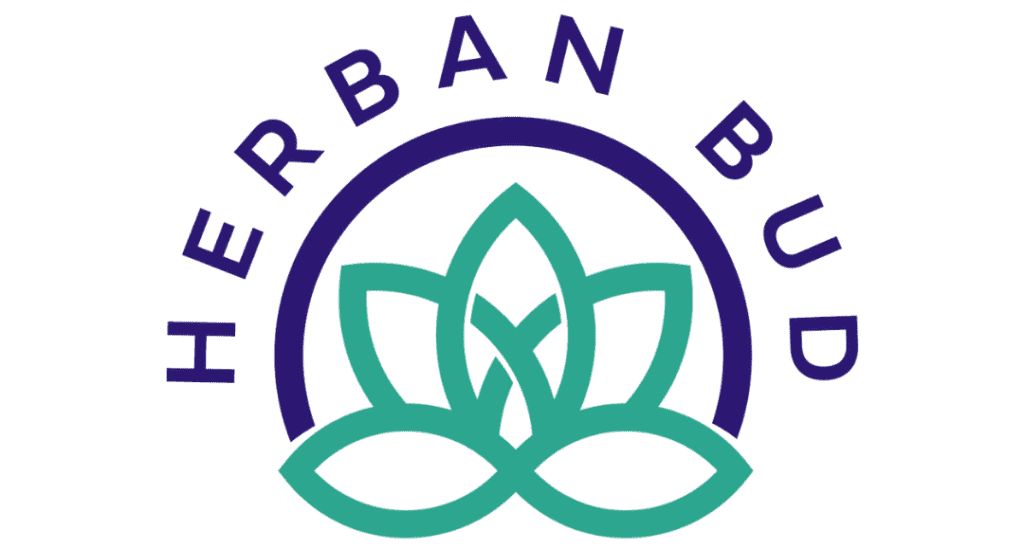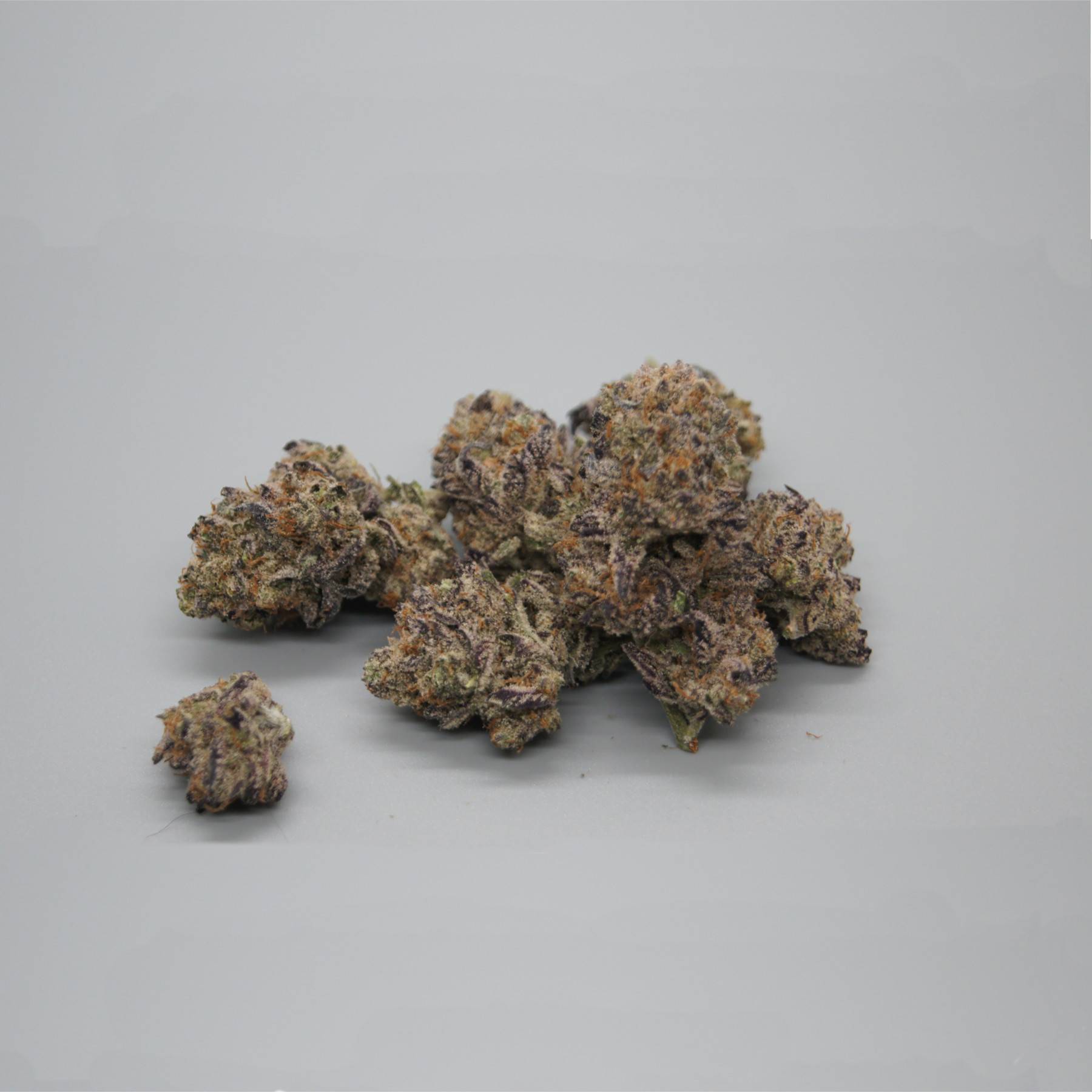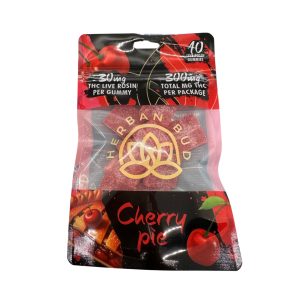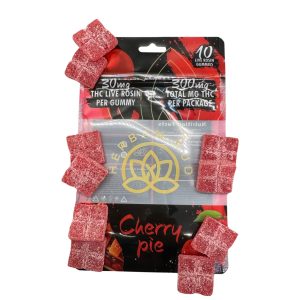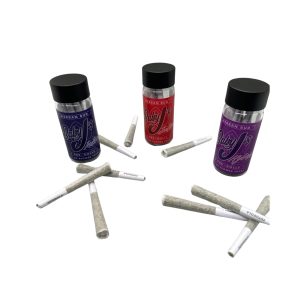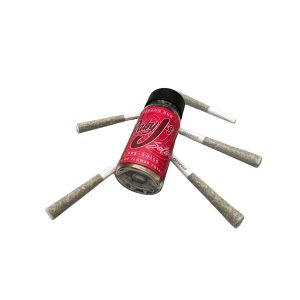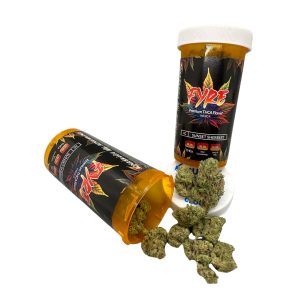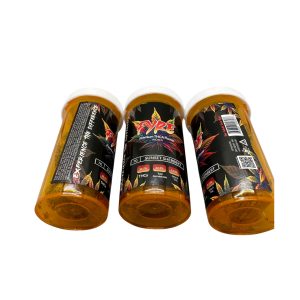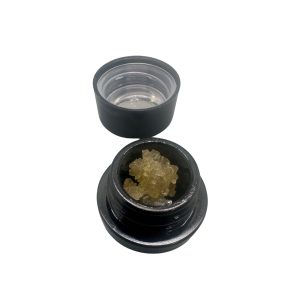Sometimes called the precursor to THC (the main chemical responsible for psychological effects in cannabis), ∆1-Tetrahydrocannabinolic acid is a non-psychoactive compound that exists in all strains of cannabis that contain THC.
Put simply, THCa is the chemical that converts into Delta-9 THC when you expose it to sufficient light or heat. Converting THCa through light takes far longer than using heat, which is why most people prefer to burn it to gain the effects.
Unlike THC, THCa is legal on the federal level, so you can acquire it in many areas.
However, there are some significant differences between these two chemicals, and one is not a substitute for the other. So, what is THCa in cannabis, and what is it likely to do?
THC and THCa
The primary difference between THC and THCa is that THCa doesn’t have the same psychoactive properties as THC. In other words, it doesn’t get you high.
THCa is the natural form of the molecule. The conversion process between the two is called decarboxylation. If you apply the right level of heat to THCa, it removes a carboxylic acid chain and converts the molecule to Delta-9 THC.
However, while THCa doesn’t get you high, it can have other effects on your body.
What Does THCa Do?
Research into THCa is still ongoing, but current evidence suggests that THCa has numerous benefits when taken in appropriate amounts.
Benefits may include reduced inflammation in the body, pain relief, and help with the symptoms of issues like arthritis and seizures. THCa has some neuroprotective properties, allowing it to benefit patients with Alzheimer’s and similar conditions.
Like Delta-9 THC, THCa is also known for stimulating the appetite. While “getting the munchies” can be an amusing side-effect for someone getting high, it also has value in stimulating the appetites of people with conditions like anorexia nervosa.
Finally, some research suggests that THCa can help slow the growth of cancer cells. Although not a cure by itself, slowing the progress of cancer can make it easier for other treatments to work.
How To Consume THCa
The best way to consume THCa is in as raw a form as possible. Some people juice cannabis plants and add the result to smoothies, for example. Products like gummies, oil, and tinctures can also be suitable for THCa, but ideally, they’ll use a cold-processing technique.
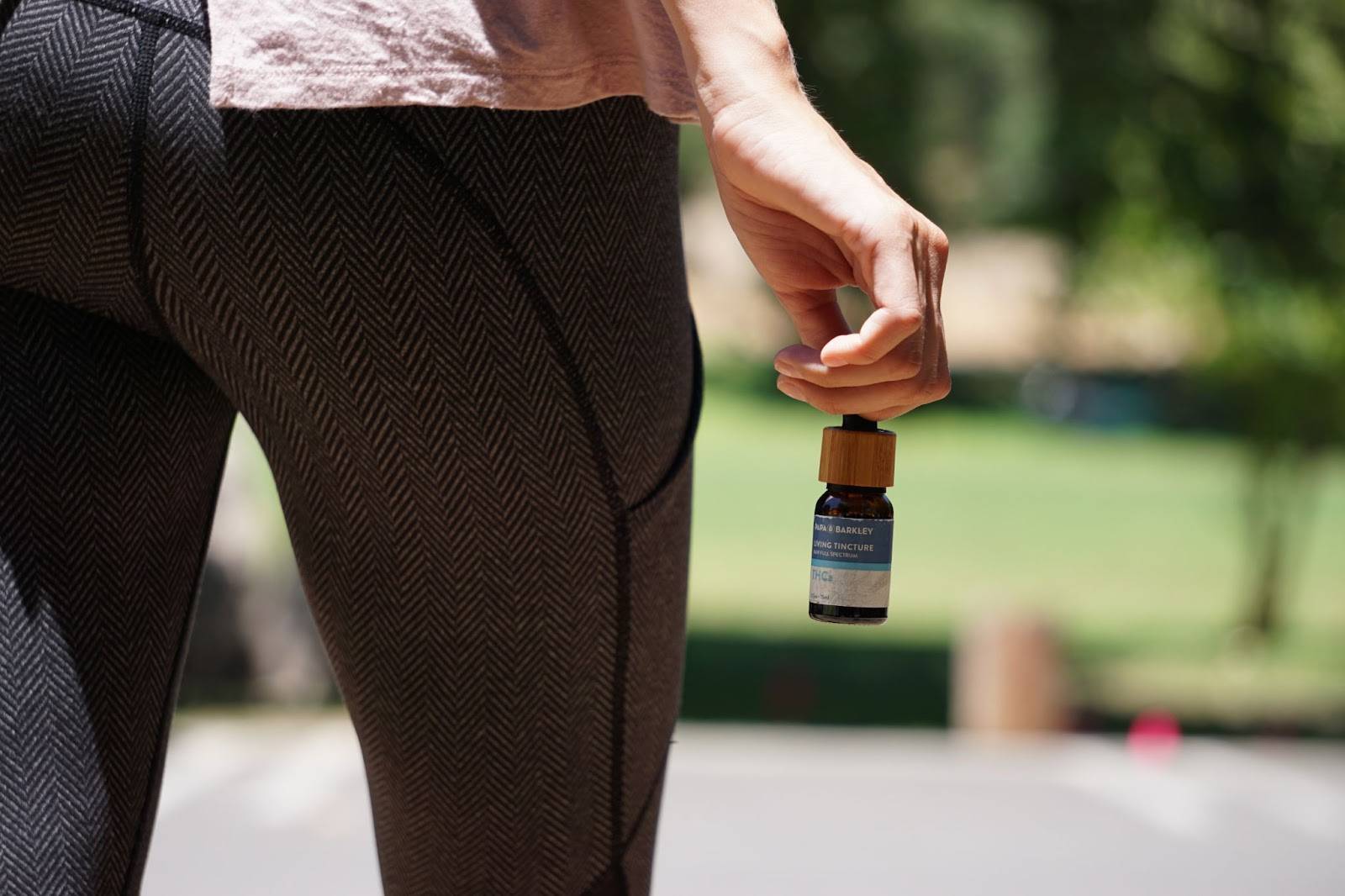
Remember, heat converts THCa to THC, so any hot production techniques can destroy the THCa before you get it. When possible, look for certifications and outside testing to help ensure the potency of any products with THCa.
Non-Psychoactive THCa Products
Here are some types of non-psychoactive THCa products.
Note that some products may contain a mix of THCa and THC, so you should always read the label and verify what you’re getting.
THCa Oil
But what exactly is THCa oil?
THCa oil is a relatively rare product that’s essentially a liquid suspension containing the molecules we want. However, legal hemp plants only contain a tiny percentage of THCa, so it takes a lot of plants to extract a meaningful amount of the chemical. That’s why THCa oil products tend to be much rarer than things like CBD or delta 8.
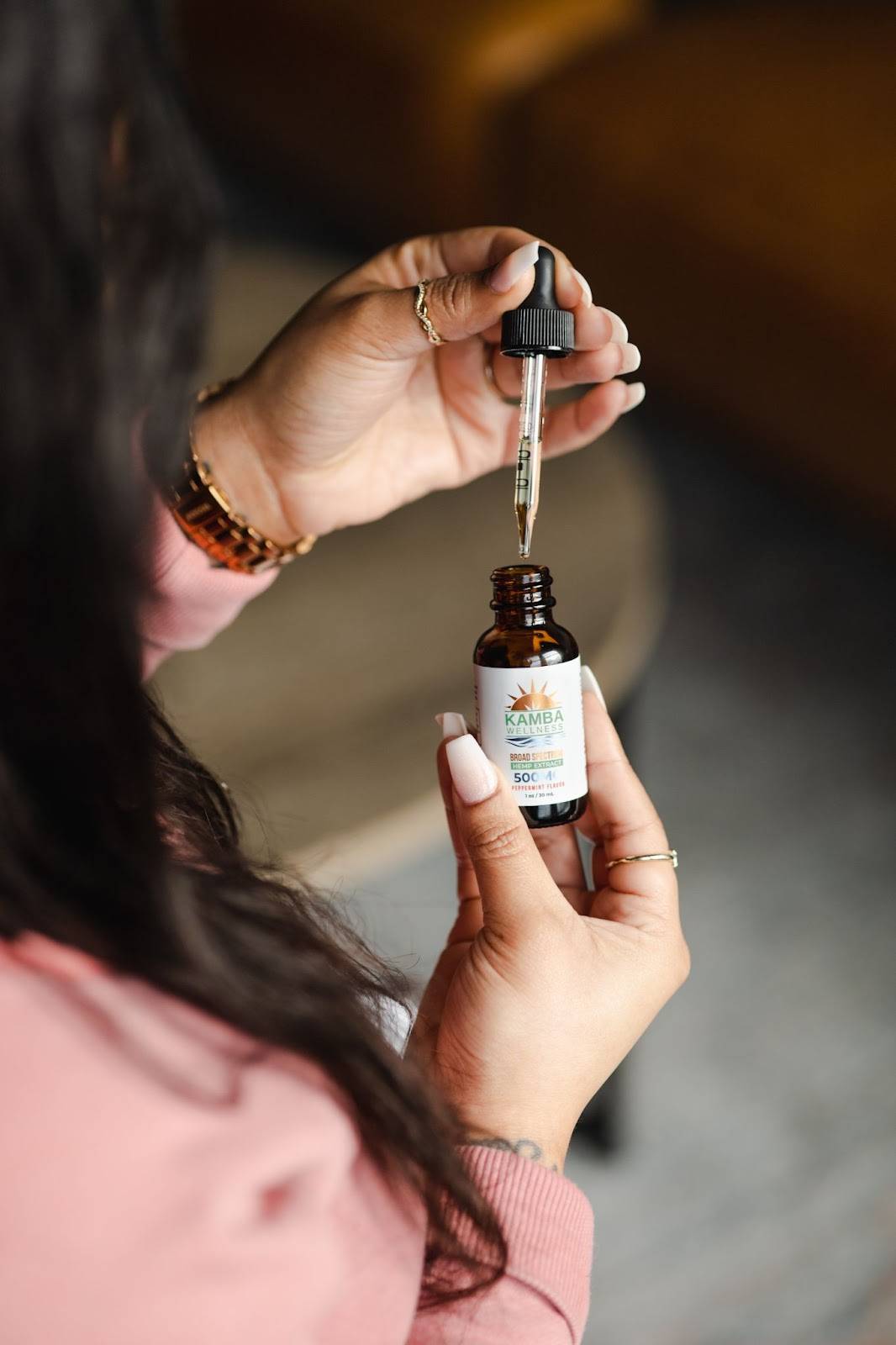
However, if you can find this, it’s an excellent way to consume THCa in controllable amounts and benefit from its non-psychoactive properties. THCa oils can work in smoothies or when dropped onto food. However, they’re not ideal for heated or baked goods. Remember, heat changes this chemical!
THCa oils may contain up to 0.3% THC from hemp, which is the federal limit for hemp plants.
THCa Tincture
Tinctures are an alternative option to THCa oils. This process involves using high-proof alcohol to extract the compounds from cannabis plants. After refining and filtering the final product, the result has excellent protection against oxidation, which is a benefit over oils.
Tinctures often have flavoring additives to cover up the bitter alcohol flavor that remains. Unlike THCa oil, which tends to be a relatively pure product, tinctures may also have other supplements like vitamins or melatonin.
These properties make tinctures ideal for oral dosing. Their flavors may not mix well with other products, so it’s best to consume a tincture directly.
Finally, any form of THCa THC CBD tincture may be labeled as such for marketing purposes, even if they’re oil. The difference is that tinctures use alcohol, while oils don’t.
Benefits of THCa
So, what is THCa good for? Scientific research is ongoing, but professional studies indicate patients can likely expect benefits in many areas.
Strong Anti-Inflammatory Properties
THCa has documented anti-inflammatory properties. While the exact method of action in the body isn’t known, we can see the results. Inflammation is tied to numerous negative effects within the human body, so substances that can reduce it can ultimately have significant benefits.
Anti-Nausea
Studies indicate that THCa is anti-emetic and, therefore, it’s capable of controlling problems like nausea and vomiting. For most people, things causing such conditions are relatively short-lived so THCa may be a viable alternative to other anti-nausea medications. However, getting the right effects will require figuring out a proper dose.
Mitigate Effects of Neurodegenerative Diseases
THCa has observed neuroprotective properties, including protecting some types of neurons against certain types of induced cell death. Recovering from issues in the brain can be difficult or impossible, so early prevention can have a more significant effect and ultimately lead to better outcomes.
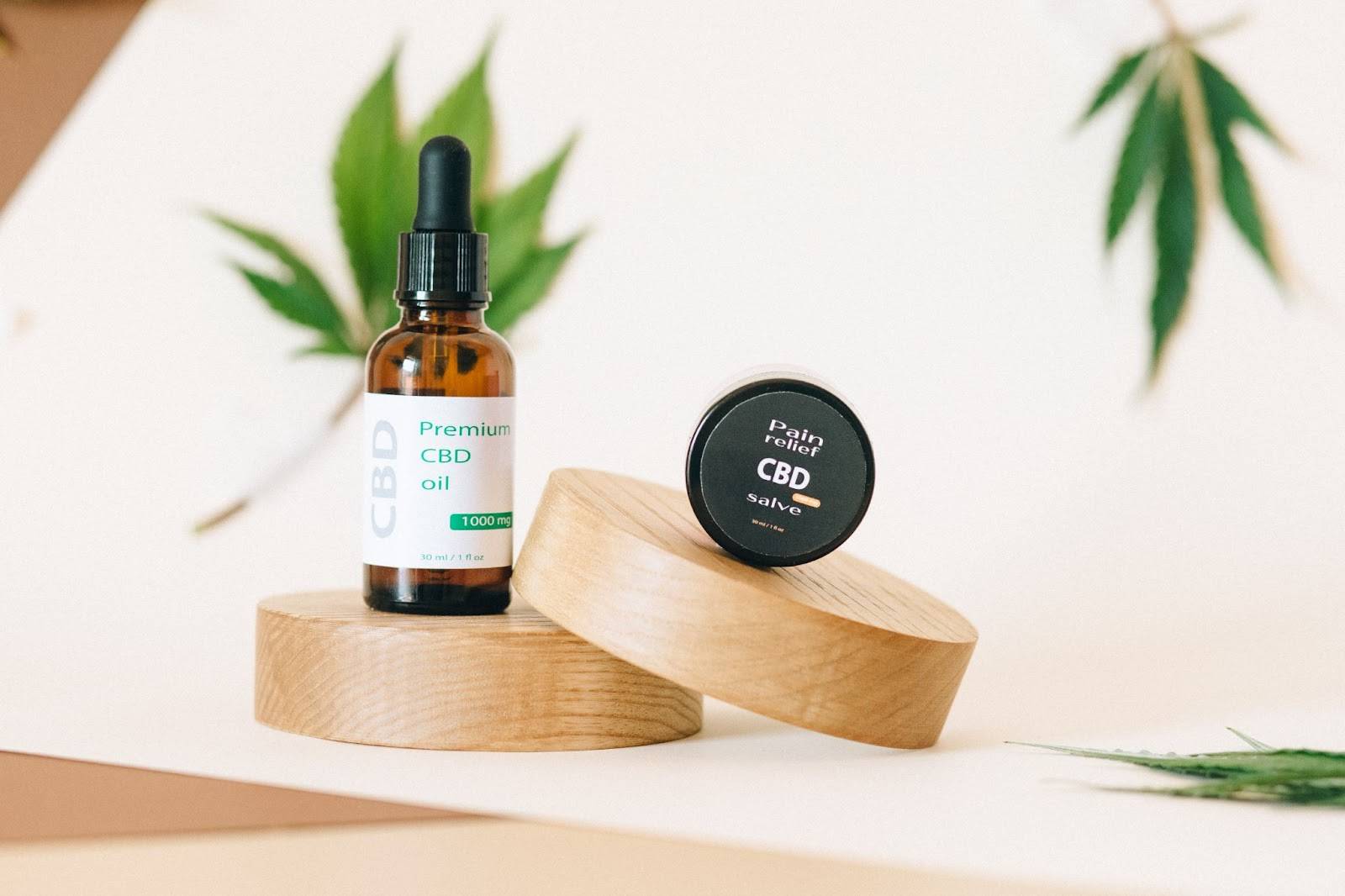
Potential to Help with Cancer
THCa may help mitigate the growth of some cancer types, especially prostate cancer. Speculation is that this may be partially due to its anti-inflammatory properties, but it’s hard to overstate the value of inhibiting the spread of cancer when trying to control it. Slowing progression makes it significantly more likely that other treatments will work.
Does THCa Get You High?
No. THCa is fundamentally non-psychoactive, so you can eat as much raw cannabis as you want without getting a buzz.
The reason THCa doesn’t get you high is because it’s too big to fit in the chemical receptors that trigger psychoactive effects. THC lacks the extra carboxylic acid chain, so it fits in chemical receptors and triggers reactions.
Essentially, the process of creating THC makes it small enough to fit in places where THCa can’t.
Effects of THCa
THCa has numerous effects on the body thanks to its ability to bind in certain areas and provoke biological responses. However, unlike getting high, most of these effects aren’t immediately apparent.
Potential benefits like anti-inflammation and stimulated appetite only tend to show up after a little while. The neuroprotective properties and anti-nausea traits may take some time to kick in. It’s easier to think of THCa as moderate support for many conditions, and you may need long-term use to realize some of its benefits.
Psychoactive THCa Products
THCa is not psychoactive, so psychoactive products usually mix THCa, THC, and possibly other substances to get a wider spectrum of benefits. Remember that some products aren’t available in all areas, so check your local laws to be sure anything you buy is legal.
THCa Flower
THCa flowers are primarily for getting high. More THCa in the base flower usually means more Delta-9 THC after you burn it. Some people also create dabs with these flowers. Notably, however, hemp flowers are federally legal as long as the THC within them is less than 0.3% of their dry weight. That makes these relatively easy to buy and ship.
THCa Diamonds
THCa diamonds are nearly-pure, solid crystals that are essentially concentrated extracts from hemp plants. Some manufacturers have already achieved a purity of 98.87%, and this may increase as they refine production techniques.
Diamonds are an excellent way to get a concentrated, controllable amount of THCa. While it’s still important to figure out dosing information, diamonds are often easy to mix with other methods of consuming THCa. You can buy thca diamonds from out store.
THCa Prerolls
THCa prerolls are one of the easiest ways to get THCa and possibly convert them into THC. Starting with high-THCa flowers, companies grind things up, then roll them into portion-controlled joints. These provide a quick and controllable amount of the relevant substances, making them ideal for users who want to acquire these chemicals by smoking them.
Where to Buy THCa
THCa is available online in our store and at participating retailers where lawful. You can look for our products in specialty stores and some locations that sell medicinal products, including pharmacies and drugstores.
FAQs
Here are some common questions that people have about THC vs. THCa, the THCa meaning, and other matters.
What does THCa mean?
THCa is the shorthand name for ∆1-Tetrahydrocannabinolic acid, one of the primary substances in hemp and cannabis plants that has relevant chemical properties. As the precursor to THC, THCa is capable of providing a range of benefits.
What does the “acid” at the end of THCa mean? Is there acid in the cannabis?
Acids are a type of molecule, capable of either providing a proton to another molecule or forming a covalent bond. Although calling something an acid can make it sound intimidating, it’s important to remember that we frequently consume many mild acids in our day-to-day lives.
For example, we need to consume essential amino acids in our diets, usually in the form of protein. Our bodies break the protein we eat down into their acidic components, then use those to build new proteins for what our bodies need.
Similarly, we need ascorbic acid (better known as Vitamin C) to stay healthy. Ascorbic acid helps prevent scurvy, supports the immune system, and functions as an antioxidant to protect the body.
The most important thing to understand is that acids are present in many forms in most foods, and many of them are necessary nutrients. THCa is acidic, but mildly so, and it isn’t known to have meaningfully damaging effects on the human body.
Does THCa show up in a drug test?
In most cases, yes, THCa shows up on drug tests.
This is because most drug tests are checking for THC-COOH, a compound that both THC and THCa can metabolize into. Drug tests can’t distinguish the source of the compound, so higher amounts of it can lead to failing a test. That said, many tests don’t consider trace amounts of THC-COOH to be a failure.
If you’re concerned about drug tests but want to use THCa, consider talking to the tester and letting them know ahead of time that you use THCa. Remember, THCa is a federally legal product and is similarly legal in most states (for more see our is THCa illegal article. You may need to show them your products to demonstrate the source of your results, but better employers will accept this.
What happens when I smoke THCa?
The exact effects of smoking THCa can change depending on how you’re smoking it. If you’re using heat, as many people do, it’s possible to convert the THCa into Delta-9 THC and trigger psychoactive effects. However, this is illegal in some areas and we do not encourage any lawbreaking activities.
Some smoking systems can vaporize THCa without heating it, allowing you to enjoy its benefits without a buzz. However, regardless of the method, smoking THCa is usually less effective than using oils, tinctures, or edibles.
Is THCa psychoactive?
THCa itself is not psychoactive. However, many of the chemicals you can produce from it are.
In the THCa vs. delta 9 comparison, delta 9 tends to produce a stronger high than some other versions of THC. Potential effects could include things like fatigue or dizziness, but the chances of this are lower if you’re accustomed to THC.
For THCa vs. delta 8, delta 8 is a relatively mild psychoactive component and certainly less so than delta 9. This makes it a good choice for people who want a gentler experience. Some people choose products that can convert into delta 8 for expected help with issues like substance abuse or depression.
In THC-O vs THCa, THC-O also known as Delta 0 is generally stronger than delta 9. Most people will feel the effects quickly, after a single hit of it, and it’s approximately three times stronger than regular THC. It’s still made under a chain of custody beginning with federally-legal hemp plants, which is why it’s available in so many areas.

